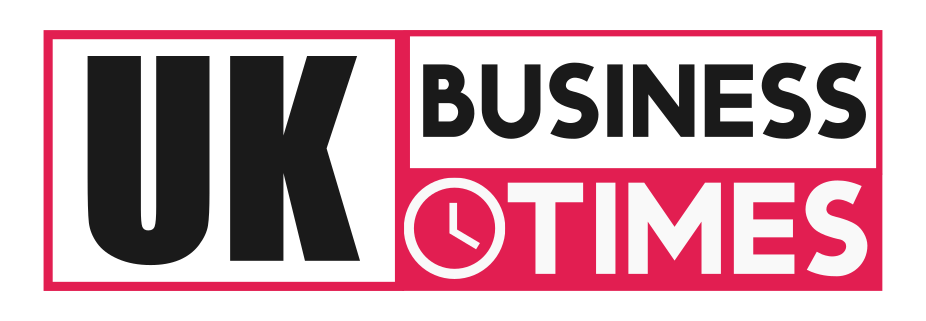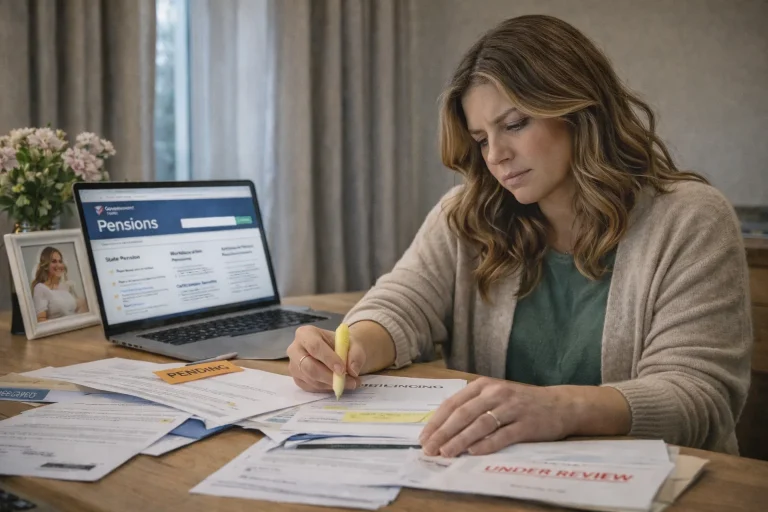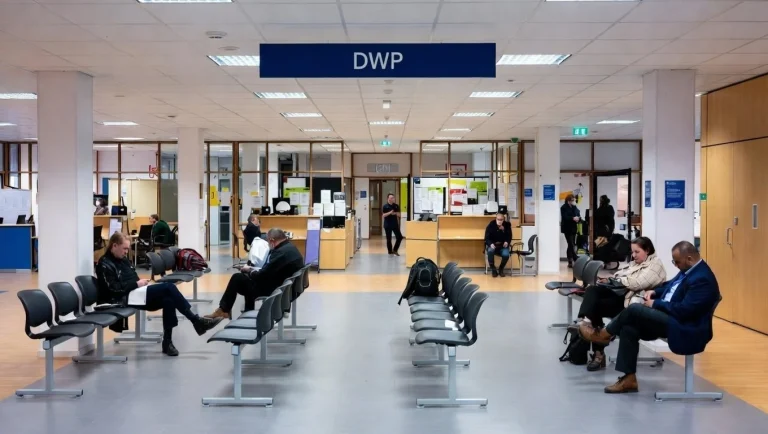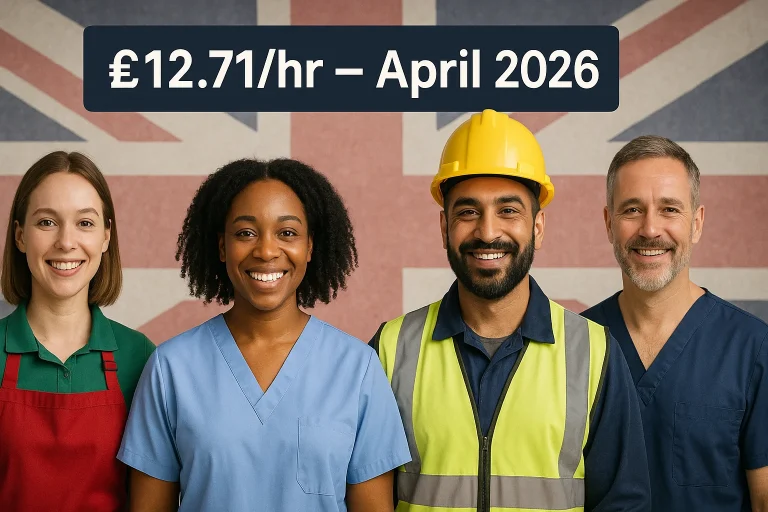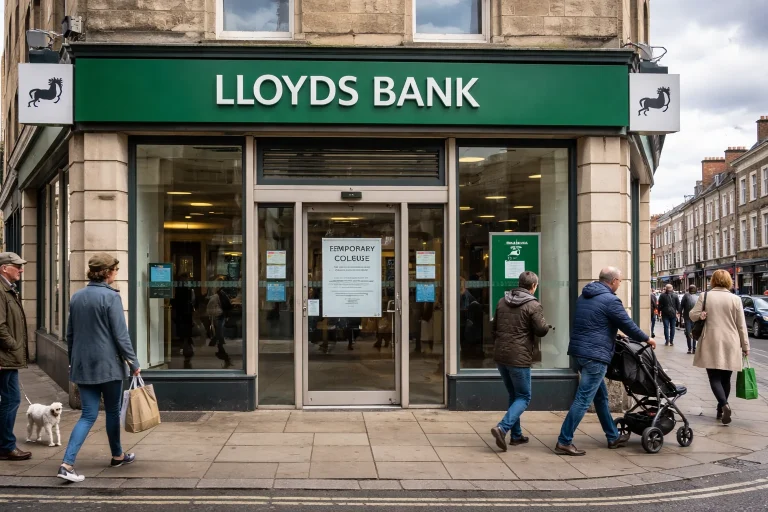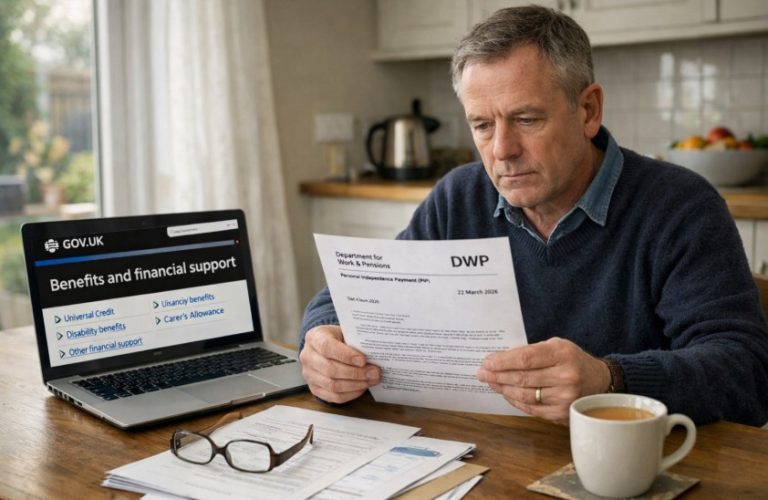There are many legitimate ways to access government financial support in the UK from ongoing welfare benefits to one-off payments and local emergency grants.
Whether you’re on a low income, unemployed, disabled, caring for someone, or simply facing a difficult financial period, various schemes exist to help ease your burden.
This guide explains the types of financial assistance available, who can apply, and how to get started all based on official GOV.UK resources and trusted sources.
What “Free Money” Means in the UK?
Government-provided financial support in the UK is available through a variety of schemes designed to help individuals and households meet basic living needs.
These payments are not loans, nor do they need to be repaid, provided eligibility rules are met. The money typically comes through structured welfare programmes, discretionary local grants, or one-time cost-of-living payments.
In most cases, the payments are not universal. They are either means-tested, contribution-based, or tied to personal circumstances such as disability, caring responsibilities or pension age. Understanding how these schemes work is key to accessing what you’re entitled to.
What Are the Welfare Benefits and Means-Tested Payments?
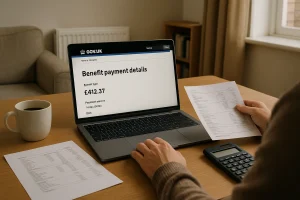
The UK’s welfare system provides several types of income-based support to help people with living costs.
These benefits are means-tested, meaning that the amount a person receives depends on their household income, savings and employment situation.
The goal is to ensure that individuals and families have enough money to cover essential needs like housing, food and utilities.
Universal Credit
Universal Credit is one of the most widely used benefits in the UK. It replaces several older payments, including Jobseeker’s Allowance, Housing Benefit, and Child Tax Credit, merging them into one simplified monthly payment.
This benefit supports people who are unemployed, working on a low income, or unable to work due to health reasons. The amount received varies depending on personal circumstances such as the number of dependents, rent costs, or disabilities.
How to apply for Universal Credit:
- Visit the official GOV.UK Universal Credit page.
- Create a GOV.UK account and start an online claim.
- Provide details about your income, rent, savings, household members and employment.
- Attend an initial appointment at your local Jobcentre Plus (usually online or in-person).
- If you need urgent money, request an advance payment during the application process.
- You’ll usually receive the first full payment within 5 weeks of the claim date.
Claimants can track payments and communicate with their work coach through their online Universal Credit journal.
Employment and Support Allowance (ESA)
Employment and Support Allowance is designed for people who cannot work due to illness or disability but who are not currently receiving Universal Credit.
It can be contribution-based or income-related depending on the applicant’s work history and financial circumstances.
ESA offers two main groups of support:
- Work-Related Activity Group, where recipients prepare to return to work with guidance.
- Support Group, for those unable to work due to severe conditions.
How to apply for ESA:
- Go to GOV.UK ESA page to start an application.
- Download or complete the ESA1 claim form online.
- Submit the form along with your National Insurance number and GP’s fit note.
- The Department for Work and Pensions (DWP) may request a Work Capability Assessment to confirm eligibility.
- Once approved, payments are made every two weeks directly to your bank account.
Those who previously received Statutory Sick Pay may transition automatically to ESA when that support ends.
Pension Credit
Pension Credit provides extra money to people who have reached State Pension age and have a low income. It helps top up weekly income and often qualifies recipients for additional benefits such as free TV licences, council tax reductions, and help with NHS costs.
There are two parts to Pension Credit:
- Guarantee Credit: tops up income if it’s below a set threshold.
- Savings Credit: provides extra income for those who have modest retirement savings or pensions.
How to apply for Pension Credit:
- Visit the Pension Credit application page on GOV.UK.
- Apply online, by phone at 0800 99 1234, or by post using a paper form.
- Provide proof of income, savings, pensions, and housing costs.
- You can apply up to four months before reaching State Pension age.
- Decisions are typically made within a few weeks, and payments go directly to your bank account.
Applicants are encouraged to use the Pension Credit calculator on GOV.UK to check eligibility before applying.
What Are the Disability and Health-Related Benefits?
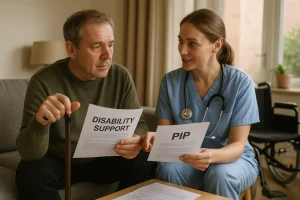
Disability and health-related payments are designed to help individuals manage the extra costs that come with long-term illnesses, disabilities, or care responsibilities.
These benefits are not taxable and, in most cases, not affected by income or savings.
Personal Independence Payment (PIP)
Personal Independence Payment supports people aged 16 to 64 who have a disability or long-term health condition that affects their daily living or mobility. It is gradually replacing the old Disability Living Allowance (DLA) for adults.
There are two parts to PIP:
- Daily Living Component: for help with everyday activities like eating, dressing, or managing finances.
- Mobility Component: for people who need help getting around.
The rate you receive depends on how your condition affects you, not on the condition itself.
How to apply for PIP:
- Call the PIP new claims helpline on 0800 917 2222 or use the Relay UK service if you have hearing difficulties.
- You’ll be asked basic details such as National Insurance number, GP contact, and bank account.
- Receive the “How your disability affects you” (PIP2) form by post and complete it carefully, giving detailed examples of daily challenges.
- Return the form within one month using the provided envelope.
- Most applicants will be invited to a health assessment either in person, by phone, or via video.
- The Department for Work and Pensions (DWP) reviews all evidence and issues a decision by post.
If approved, PIP is paid every four weeks directly into the claimant’s bank account.
Carer’s Allowance
Carer’s Allowance is available for people who look after someone for at least 35 hours per week. The person being cared for must receive a qualifying disability benefit such as PIP, Attendance Allowance, or Disability Living Allowance (middle or higher rate care component).
You don’t have to be related to or live with the person you care for to claim. However, you can only receive one Carer’s Allowance payment even if you care for multiple people.
How to apply for Carer’s Allowance:
- Visit the GOV.UK Carer’s Allowance page.
- Apply online using your National Insurance number and bank details.
- Provide information about the person you care for, including their benefit details.
- Once approved, you’ll receive a letter confirming your entitlement and payment start date.
- Payments are made weekly or every four weeks into your bank account.
Claimants must report any changes in circumstances, such as getting a job or changes in the cared-for person’s condition, to avoid overpayment.
What Are the Annual and One-Off Government Payments?
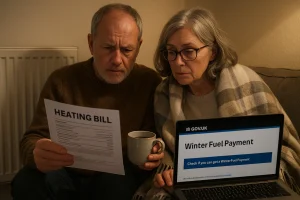
Not all government help comes in the form of ongoing benefits. Some financial assistance is provided through one-off or annual payments designed to help with seasonal costs or economic pressures.
These payments are often issued automatically if you receive qualifying benefits, although some require applications through energy suppliers or local councils.
Cost of Living Payments
Cost of Living Payments are temporary financial boosts issued by the UK government to help households manage rising living costs.
These payments are aimed at low-income households, pensioners, and individuals on disability benefits. The scheme has been introduced multiple times in recent years as part of national cost-of-living support.
Eligibility:
- Must receive a qualifying benefit such as Universal Credit, Pension Credit, Income Support, or income-related ESA.
- Claimants are usually not required to apply; payments are made automatically if eligible.
How to receive the payment:
- Ensure your qualifying benefit claim is active and up to date on the relevant GOV.UK system.
- Payments are sent automatically to your registered bank account.
- Each round of payments has specific eligibility dates; check GOV.UK’s “Cost of Living Payment” page for the latest details.
- If you think you should have received a payment but haven’t, use the GOV.UK online tool to report a missing payment.
No repayment is required for this support, and receiving it does not affect other benefits.
Warm Home Discount
The Warm Home Discount helps eligible households with their winter energy bills by giving a direct rebate, usually credited to the electricity account. The scheme is run by participating energy suppliers and backed by the UK government.
Eligibility:
- You receive the Guarantee Credit element of Pension Credit, or
- You are on a low income and meet your energy supplier’s criteria.
How to apply:
- Check if your energy supplier participates by visiting the GOV.UK Warm Home Discount page.
- If you are in the Pension Credit group, the payment is applied automatically.
- For low-income households, contact your energy supplier directly to apply or confirm eligibility.
- The discount is usually £150 and credited directly to your bill between October and March.
It’s recommended to check eligibility early, as each supplier has limited funds for this support.
Winter Fuel Payment
The Winter Fuel Payment supports pensioners with heating costs during colder months. It is a tax-free annual payment made to most people born before a specific cut-off date (usually September of the current qualifying year).
Eligibility:
- Born before the date listed on the GOV.UK eligibility page.
- Live in the UK during the qualifying week.
- Already receive the State Pension or another social security benefit (not including Housing Benefit or Universal Credit).
How to apply:
- Most pensioners receive the payment automatically if they are registered for the State Pension.
- If you’ve never received it before or live abroad in certain countries, apply using the Winter Fuel Payment claim form on GOV.UK.
- Send the form by post to the Winter Fuel Payment Centre.
- Payments are usually made between November and January.
The amount ranges from £100 to £300 depending on age and household circumstances.
TV Licence Discounts and Free Prescriptions
Some groups are entitled to help with television and healthcare costs. Pensioners over 75 who receive Pension Credit can apply for a free TV licence, while individuals on certain benefits can get free NHS prescriptions and dental care.
How to apply for a free TV licence:
- Visit TV Licensing Free TV Licence page.
- Complete the online application form and provide proof of receiving Pension Credit.
- If approved, the licence will be issued at no cost and renewed automatically each year as long as eligibility continues.
For free prescriptions and NHS care:
- Eligibility is usually automatic if receiving qualifying benefits.
- You can check your status using the NHS cost checker tool.
What Are the Some Local Council Grants and Emergency Help?

Local councils play a crucial role in providing immediate, short-term financial help for residents facing unexpected hardship.
These schemes are often discretionary, meaning the council decides how much to award and who qualifies, based on available funding and local priorities.
Household Support Fund
The Household Support Fund provides emergency financial assistance to households struggling with essential costs such as food, heating, water bills or essential goods like white goods and bedding. The fund is distributed by local councils and funded by central government.
Eligibility:
- Must be a resident within the local council area.
- Usually open to low-income households, people receiving benefits, or those experiencing temporary financial hardship.
How to apply:
- Visit your local council’s website and search for “Household Support Fund”.
- Complete the online application form with your income details, recent bills, and proof of hardship.
- Some councils may require supporting documents such as benefit letters, rent statements, or bank statements.
- Applications are typically processed within a few weeks.
- Support may be given as supermarket vouchers, direct payments to utility companies, or small bank transfers.
The fund is periodically renewed, so residents are encouraged to recheck eligibility each financial quarter.
Discretionary Housing Payments (DHP)
Discretionary Housing Payments are available for people who already receive Housing Benefit or the housing element of Universal Credit but still struggle to meet full rent payments. The payment helps cover rent shortfalls or deposits in some cases.
How to apply:
- Visit your council’s housing benefit page or GOV.UK and search for “Discretionary Housing Payment”.
- Download or complete the online DHP application form.
- Provide recent rent statements, tenancy agreements and evidence of your income and benefits.
- Each application is assessed individually, considering financial hardship and housing needs.
- Approved payments are made directly to your landlord or included as a one-off transfer.
DHPs are short-term and not guaranteed for renewal, so applicants may need to reapply if their circumstances continue.
Council Hardship Schemes and Crisis Support
Beyond the national Household Support Fund, councils also operate local hardship funds for emergencies such as unexpected job loss, illness, or essential household repairs. These programmes are designed to prevent homelessness, hunger, and debt escalation.
Common types of council hardship support:
- Food bank vouchers for immediate access to groceries.
- Fuel or energy vouchers for prepaid meters.
- Emergency cash or digital vouchers for urgent needs like clothing or travel.
How to apply:
- Go to your local council’s official website and navigate to the “Emergency Support” or “Local Welfare Assistance” section.
- Complete an online application or call the council’s customer support team for urgent cases.
- Provide documentation that demonstrates your need, such as a recent redundancy notice, utility bill or eviction letter.
- Many councils partner with charities or Citizens Advice, who can assist with the application process.
- Payments or vouchers are typically processed within 24 to 72 hours for urgent needs.
Applicants should keep copies of all communications and supporting evidence, as many local authorities require revalidation if funds are requested again.
What Are the Government Assistance for Families and Children?

The UK government provides a wide range of support for families with children to help manage childcare costs, nutrition, education, and overall child wellbeing.
These schemes are often underutilised despite being vital for families on low to moderate incomes.
Free School Meals
Free School Meals are available for children from households receiving certain income-related benefits. In England, all children in Reception, Year 1, and Year 2 automatically receive free meals during school time. From Year 3 onwards, the meals are means-tested and subject to eligibility.
Eligibility typically includes households claiming:
- Universal Credit with an annual net income below a set threshold
- Income Support or Income-Based Jobseeker’s Allowance
- Child Tax Credit (but not Working Tax Credit), with income below the government’s threshold
Some local councils also offer holiday food vouchers during school breaks for families who receive Free School Meals during term time.
How to apply for Free School Meals:
- Visit your local council’s website (search “Free School Meals + your council name” on GOV.UK).
- Complete the online application form or download a paper version if available.
- Provide details such as your National Insurance number and benefit status.
- Once your application is processed, the school will be informed directly, and meals will be arranged without the need for further involvement.
The application only needs to be completed once unless your circumstances change or the school or council requests an update.
Healthy Start Vouchers
The Healthy Start scheme helps pregnant women and families with young children access nutritious food and milk. Eligible households receive a prepaid card topped up every four weeks with funds to spend on:
- Fresh, frozen or tinned fruit and vegetables
- Plain cow’s milk
- Infant formula
Applicants also receive free vitamins for pregnant women, breastfeeding mothers and young children.
You may qualify if you are:
- At least 10 weeks pregnant
- Have a child under 4 years old
- Receive certain benefits such as Universal Credit or Child Tax Credit with low income
How to apply for Healthy Start:
- Visit the NHS Healthy Start website.
- Click “Apply Now” to begin the online application process.
- You’ll need your National Insurance number, benefit information, due date (if pregnant), and details of any children under 4.
- If approved, you will receive a prepaid Healthy Start card by post. This is automatically topped up every four weeks.
- Use the card like a debit card at any shop that accepts Mastercard to buy eligible food items.
It’s essential to report any change in benefits or personal information to ensure your card continues to be topped up correctly.
What Are The Fastest Ways to Get Government Money in the UK?
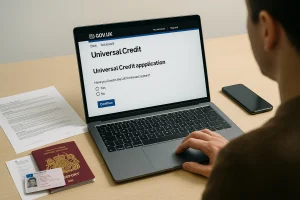
While many schemes involve detailed applications and eligibility checks, some support options are designed to offer quicker relief for urgent needs.
Start a Universal Credit Claim
Universal Credit is often the quickest entry point into the welfare system. Applications are submitted online and assessed within a few weeks. If the claimant has no income, an advance can be requested immediately, which is later repaid over time from future payments.
Emergency Local Help
Local councils may process emergency applications for help with food, energy, or other critical bills within a few days. This includes grants through the Household Support Fund or discretionary emergency payments.
| Fast Access Support | Source | Processing Time |
|---|---|---|
| Universal Credit Advance | DWP | Within 5 days of application |
| Local emergency grants | Local council | Varies (some within 24–72 hours) |
| Discretionary Housing Payments | Local council | Up to 10 working days |
| Crisis food/fuel vouchers | Council or partner charities | Often same-day |
Advance Payments and Crisis Loans
Individuals who are newly eligible for Universal Credit or are already claiming it can request a Budgeting Advance to help with emergency expenses. These are interest-free and repaid over 12 months through automatic deductions.
Step-by-Step Checklist to Claim Support
If you’re unsure where to begin, the following checklist offers a logical sequence for exploring and claiming financial support:
- Use an online benefits calculator from Turn2Us, EntitledTo, or Citizens Advice to find out what you can claim
- Check if you are eligible for Universal Credit, especially if you have no or low income
- If you are over pension age, explore Pension Credit options, which may entitle you to additional help
- For long-term illnesses or disabilities, check your eligibility for PIP using GOV.UK tools
- Contact your local council to ask about the Household Support Fund, food or utility vouchers, or discretionary housing help
- Review if you’re eligible for any winter-related support, such as the Warm Home Discount or Winter Fuel Payment
- For families, ensure you apply for free school meals and Healthy Start support if you meet the criteria
Conclusion
While it may seem overwhelming, the UK offers many routes to receive free government money in the form of support payments, grants, and subsidies. Whether you are unemployed, retired, disabled, or caring for a family, there is likely help available.
Start with a benefits calculator, check your eligibility on GOV.UK, and reach out to your local council. Don’t delay — many of these schemes are underused, and you could be entitled to significant financial relief.
Frequently Asked Questions
Can you really get free money from the government in the UK?
Yes, if you meet eligibility criteria. Free government money in the UK typically comes through benefits, grants, and support schemes that don’t need to be repaid.
What is the easiest government benefit to get in the UK?
Universal Credit is often the most accessible for working-age individuals with low or no income, offering fast online applications and advance payments.
How do I apply for emergency grants from my local council?
Visit your local council’s website and search for “Household Support Fund” or “emergency grants”. Applications are usually online and may require documentation.
Can I get help with energy bills in the UK?
Yes, schemes like the Warm Home Discount and Winter Fuel Payment provide support with heating costs. Local councils may also issue emergency energy vouchers.
What help is available for pensioners in the UK?
Pensioners can apply for Pension Credit, Winter Fuel Payments, free TV licences, and more. Many of these benefits are underclaimed, so it’s worth checking eligibility.
Is there financial help available for carers?
Yes, Carer’s Allowance is the main benefit for those who care for someone for at least 35 hours a week. Additional support is available through Carer Premium and local grants.
How do I know if I qualify for free school meals or childcare help?
Eligibility depends on income and benefit status. Use the government’s online eligibility checker or ask your local council’s education department.
{
“@context”: “http://schema.org/”,
“@type”: “FAQPage”,
“mainEntity”: [
{
“@type”: “Question”,
“name”: “Can you really get free money from the government in the UK?”,
“acceptedAnswer”: {
“@type”: “Answer”,
“text”: “Yes, if you meet eligibility criteria. Free government money in the UK typically comes through benefits, grants, and support schemes that don’t need to be repaid.”
}
},
{
“@type”: “Question”,
“name”: “What is the easiest government benefit to get in the UK?”,
“acceptedAnswer”: {
“@type”: “Answer”,
“text”: “Universal Credit is often the most accessible for working-age individuals with low or no income, offering fast online applications and advance payments.”
}
},
{
“@type”: “Question”,
“name”: “How do I apply for emergency grants from my local council?”,
“acceptedAnswer”: {
“@type”: “Answer”,
“text”: “Visit your local council’s website and search for Household Support Fund or “emergency grants”. Applications are usually online and may require documentation.”
}
},
{
“@type”: “Question”,
“name”: “Can I get help with energy bills in the UK?”,
“acceptedAnswer”: {
“@type”: “Answer”,
“text”: “Yes, schemes like the Warm Home Discount and Winter Fuel Payment provide support with heating costs. Local councils may also issue emergency energy vouchers.”
}
},
{
“@type”: “Question”,
“name”: “What help is available for pensioners in the UK?”,
“acceptedAnswer”: {
“@type”: “Answer”,
“text”: “Pensioners can apply for Pension Credit, Winter Fuel Payments, free TV licences, and more. Many of these benefits are underclaimed, so it’s worth checking eligibility.”
}
},
{
“@type”: “Question”,
“name”: “Is there financial help available for carers?”,
“acceptedAnswer”: {
“@type”: “Answer”,
“text”: “Yes, Carer’s Allowance is the main benefit for those who care for someone for at least 35 hours a week. Additional support is available through Carer Premium and local grants.”
}
},
{
“@type”: “Question”,
“name”: “How do I know if I qualify for free school meals or childcare help?”,
“acceptedAnswer”: {
“@type”: “Answer”,
“text”: “Eligibility depends on income and benefit status. Use the government’s online eligibility checker or ask your local council’s education department.”
}
}
]
}
